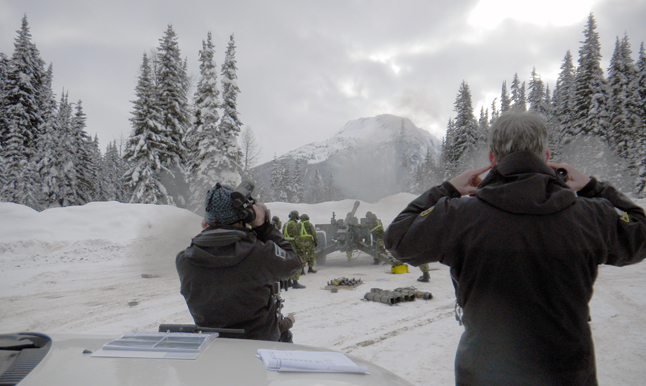
Operation Palaci, the Canadian Armed Forces (CAF) contribution to avalanche control in British Columbia, has concluded after another successful season.
Since November 2012, troops from 1 Royal Canadian Horse Artillery (RCHA) have been working closely with Parks Canada ensuring the Trans-Canada Highway, which is vital for our economy, stays open and safe during the winter months. The military annually provides artillery support in the Rogers Pass region of Glacier National Park, to trigger controlled avalanches before they become a threat.
The high altitude pass is a difficult environment with annual snow fall averaging 12 metres and with more than 130 avalanche paths crossing the highway. While Parks Canada monitors snow, weather and avalanche activity and calculates its implications, the 1 RCHA troop is ready to mobilize to any one of the 17 artillery platforms and fire a C3 105-mm Howitzer into the side of hazardous area in order to prevent a serious avalanche. This year, 1 RCHA fired 411 rounds, and caused 245 controlled avalanche slides.
“We are proud of our more than 50-year partnership with the Canadian Armed Forces in operating the world’s largest mobile avalanche control program,” said Jeff Goodrich, Parks Canada Senior Avalanche Officer. “Together, under Op Palaci, we have completed another successful winter keeping the Trans Canada and CP rail transportation corridors open and safe from avalanches.”
The CAF contribution to Operation Palaci is carried out by Joint Task Force Pacific (JTFP), headquartered in Esquimalt, B.C. It is the largest mobile avalanche control program operated by a military detachment utilizing artillery. Two artillery troops from 1 RCHA were deployed this year between November 2012 and April 2013, the majority of whom were Reservists. The end of the operation signals the beginning of spring.



